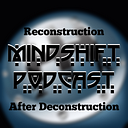Member-only story
Exploring the Influence of Dominion Theology and Christian Reconstructionism in American Politics
Why am I so concerned with movements such as dominion theology and Christian Reconstructionism? And why should you be, too — even if you’ve never heard those terms before?
The answer to that question becomes more clarified when put into the context of the intersection of American religion and politics. In the 2016 presidential election, a majority of white evangelicals voted for Donald Trump (81%, according to most polls). This was true despite the obvious reality that as a presidential candidate, and then later as president, Trump himself stands for virtually everything evangelicals have long claimed to repudiate: lying, marital infidelity, racism, misogyny, sexual assaults against women, illegitimate and cheating business practices, and so forth. On the face of it, then, evangelicals in particular should have disavowed him both as a candidate and their president. But this is far from the case.
Undeterred by his coarse and boorish behavior, that evangelical majority not only continues to support him wholeheartedly, the vast majority of them plan on voting for him again in 2020. Although most of them wish he wouldn’t be so brazen wielding his Twitter bully pulpit, on the whole they’re extremely happy with the changes he’s made, policies he’s instituted…
